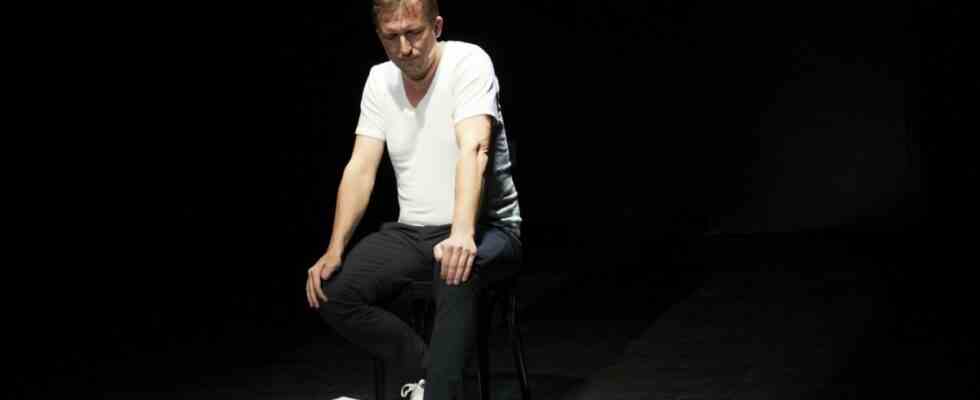A single chair on an empty stage. Boris Nikitin sits on it, squints into the backlight and begins to work on his stack of papers. Like his well-travelled “Essay on Dying”, the new play by the Swiss author and director is formally a reading and in terms of content it is about equal parts of groping self-assurance and opening up a common space for reflection. It’s called “Magda Toffler. An attempt at silence” and premiered on Friday at the Staatstheater Nürnberg. There, Nikitin last thought about the birth of German reality TV and the omnipresence of self-portrayal in the “First Season. 20 Years of Big Brother” invited to the Mülheimer Theatertage and appropriately brought out the really big scenic artillery. And the current invitation to the audience to resonate with his movements of thought is just as consistent in its intimacy, especially since the author-director also as a performer omits everything that could authenticate emotional or historical authenticity, ergo: assert the truth.
The distrust of any form of documentary theater “that claims to represent reality” and inevitably distorts it in the process, already shaped Nikitin’s early plays “Don’t be yourself!” (2013) or “Imitation of Life”. While directing the latter in 1990, the son of a Slovak mother and a Ukrainian-French father with Russian roots found out about the death of his maternal grandmother. Shortly thereafter, he received a letter from her cousin, who revealed that he was also Jewish. Nikitin’s current “Attempt” is dedicated to this thunderstorm of identity, but above all to the selective silence of his grandmother Magda Toffler about her Jewish origins. The question of what shame, pain and fear this silence created, and how the unsaid generally helps shape the stories that survive. In this case about the Second World War, dying in the concentration camp and the time after.
Boris Nikitin deals with the silence of his grandmother Magda Toffler.
(Photo: Boris Nikitin)
Doubts about the documentary get new nourishment here. And he himself is always the subject of this looping narrative web. Nikitin weaved many apparently unimportant details into it – the texture of his grandmother’s skin, the shape of his cousin’s forehead, voices, eyes – but always makes them recognizable as subjective “truths”. His theater puts his finger on the fuzziness, memory lapses and other gaps. The young protagonists in his Basel audience hit “Dämonen”, staged together with Sebastian Nübling, first of all point out the time gap of twelve seconds, which precedes their trip through the city, which is followed by the live camera, to the audience in the hall.
Nikitin’s evenings are at the same time distance meters and deep boreholes that the device uses in private in order to get somewhere else. However, his attempt at drilling in family silence is immediately framed historically: when Heinrich Himmler gathered all the Gauleiters around him in the Hotel Ostland in Posen in October 1943 and announced his plan for the complete annihilation of the European Jews, two phonographs documented not only the monstrosity of this speech, but also the lack of contradiction. Nikitin imagines those present silently waiting to see if someone will break the silence and states: “The phonographs don’t just record the gap between the words, they create them… Because nobody hears anyone else say anything, nobody says anything. ” In this apparent tautology, he captures the manipulative power of surveillance states, documentary technologies, and collectives.
Looking away when neighboring houses and countries are burning, various forms of inner emigration, “retreating into the private sphere” are all variants of the silence they create and don’t break, whispers the subtext of this small but stimulating evening, to which one wants many viewers.

